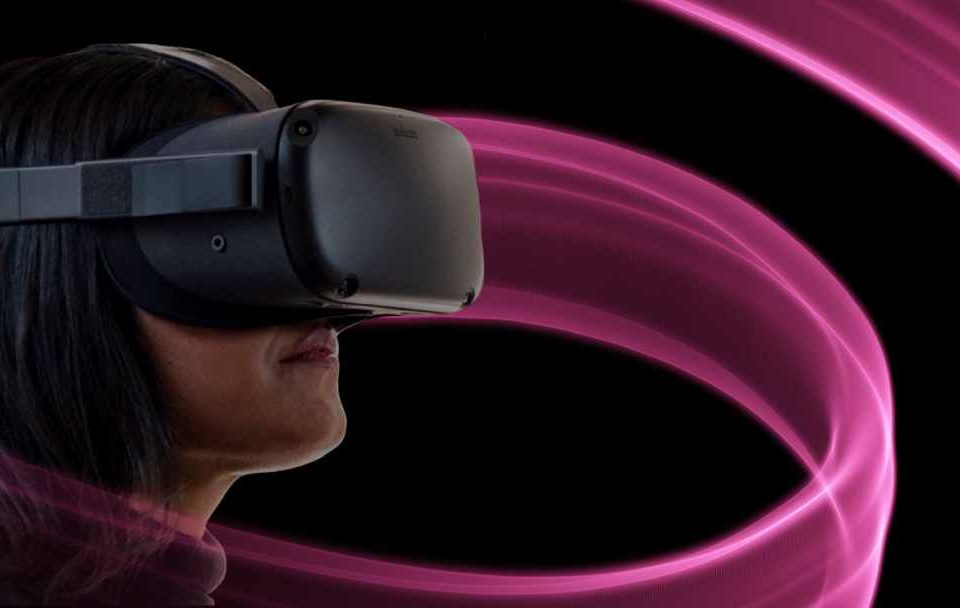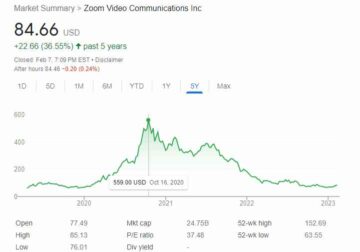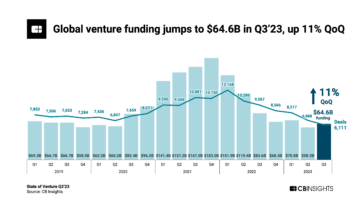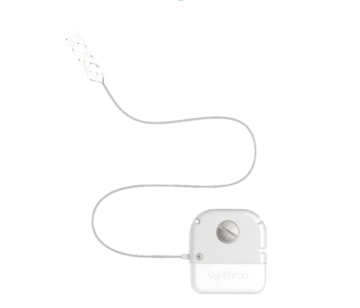
The adoption of virtual reality for experiential learning has increased over the years as it becomes mainstream. Now, VR technology could be headed into your local K-12 STEM schools, thanks to Prisms VR, a virtual reality startup founded by an education expert and MIT engineer Anurupa Ganguly.
After completing her engineering and computer science study at MIT, Ganguly worked as a teacher with Teach for America, and a leading math and science education for the charter-school organization Success Academy in New York. Ganguly found firsthand that US schools were failing to engage most of their students when teaching math and science. Her experience at Success Academy later led her to start Prisms VR.
Founded just two years ago, Prisms VR (Prisms) is a virtual reality learning platform that teaches secondary math and science concepts spatially and steeped in real-world contexts, before building up to symbolic notation. Backed by the National Science Foundation and the National Institutes of Health, Prisms is the first spatial learning platform for K-12 STEM education, scaling a new way of learning core math and science that actualizes pedagogies that work best. Prisms recently raised new funding to grow its platform.
Today, Prisms announced today it has raised $12.5 million in a Series A funding round from Andreessen Horowitz to accelerate math literacy throughout the U.S. Prisms launched in 2021 to bring problem-driven, tactile and visual learning to the math classroom. Prisms is the first educational technology platform to leverage virtual reality (VR) to accelerate math proficiencies in U.S. schools.
Prisms plans to use the fresh cash infusion to accelerate the growth and adoption of its product and team. The funds will also go to expanding programs to more schools across the U.S. and product development in higher education and other subjects.
“One of the top indicators of success in STEM is the ability to spatially reason, or rotate 3D objects in your mind and maintain perspective about objects,” Ganguly said. However, most math-lesson plans rely too heavily on memorization and regurgitation, and do not help children understand math and geometry in a spatial context, she explained.
“Fragile math proficiencies continue to be the root cause of disengagement and attrition in STEM. This is because the core predictors of success in STEM – spatial reasoning and the ability to abstract from physicality – are woefully underrepresented in learning materials today,” Prisms said on its website.
“Kids should be able to experience something spatially through doing and moving, but we haven’t had the tools to scale it even though teachers want to do it,” she said.
Learning math in VR is the best way for students to understand the “why” behind math, a question left unanswered by many. Already adopted by 100+ school districts across 26 states, Prisms is bringing meaningful, purpose-driven math teaching and learning to more than 80,000 students in districts large and small. From rural to large cities, students are being given the opportunity to learn abstract concepts they typically memorize, through tactile real-world experiences that are at once inspiring and effective.
“Educational technology that is efficacious at scale is hard to find. We believe that Anurupa and her team have pioneered a novel approach – one that is able to leverage VR technology to teach students the way they learn best,” said Jeff Jordan, general partner at Andreessen Horowitz. “We’re excited to be a partner as Prisms not only continues to make a massive impact on students across the country but also paves the way for the future of education.”
Anurupa Ganguly founded Prisms to address the huge dearth of relevant math learning solutions, which has led to stubbornly low proficiency rates across the U.S. for decades. As a math and physics teacher in Boston, Ganguly found that the U.S. education system doesn’t enable students to utilize the multiple modalities through which human beings make sense, reason, and deepen their understanding of the world around them.
“Technology has failed our students, especially where math is concerned. With new developments in immersive tech, we have the opportunity to make learning experiential and connected to students’ lives. Prisms is the first learning solution that empowers students to experience real-life problems with their bodies versus reading about them divorced from personal experience. They are then able to build up to shorthand abstractions from intuitive visual and tactile experiences that lead to enduring retention and deeper understanding.”
“Though education is VR’s most powerful use case, we haven’t seen disruptive VR learning tools transforming formal classroom settings, until now. Math education is going to be the killer app for VR,” Ganguly added.
- SEO Powered Content & PR Distribution. Get Amplified Today.
- Platoblockchain. Web3 Metaverse Intelligence. Knowledge Amplified. Access Here.
- Source: https://techstartups.com/2023/01/30/vr-tech-startup-prisms-vr-bags-12-5m-series-a-funding-led-by-andreessen-horowitz-to-teach-kids-math-using-virtual-reality/
- 000
- 2021
- 3d
- 9
- a
- ability
- Able
- About
- ABSTRACT
- Academy
- accelerate
- across
- added
- address
- adopted
- Adoption
- already
- america
- and
- Andreessen
- Andreessen Horowitz
- announced
- app
- approach
- around
- attrition
- backed
- bags
- because
- becomes
- before
- behind
- being
- believe
- BEST
- boston
- bring
- Bringing
- build
- Building
- case
- Cash
- Cause
- Children
- Cities
- completing
- computer
- computer science
- concepts
- concerned
- connected
- context
- contexts
- continue
- continues
- Core
- could
- country
- decades
- Deepen
- deeper
- Development
- developments
- disruptive
- Doesn’t
- doing
- Education
- educational
- Effective
- empowers
- enable
- enduring
- engage
- engineer
- Engineering
- especially
- Even
- excited
- expanding
- experience
- Experiences
- experiential
- expert
- explained
- Failed
- Find
- First
- formal
- found
- Foundation
- Founded
- fresh
- from
- funding
- Funding Round
- funds
- future
- General
- General Partner
- geometry
- given
- Go
- going
- Grow
- Growth
- Hard
- headed
- Health
- heavily
- help
- higher
- Higher education
- Horowitz
- However
- HTTPS
- huge
- human
- immersive
- Impact
- in
- increased
- Indicators
- infusion
- inspiring
- intuitive
- IT
- Jordan
- kids
- killer app
- large
- launched
- lead
- leading
- LEARN
- learning
- Led
- Leverage
- literacy
- Lives
- local
- Low
- Mainstream
- maintain
- make
- many
- massive
- materials
- math
- meaningful
- million
- mind
- MIT
- more
- most
- moving
- multiple
- National
- National Institutes of Health
- National Science
- New
- New Funding
- New York
- novel
- objects
- ONE
- Opportunity
- organization
- Other
- partner
- personal
- perspective
- Physics
- pioneered
- plans
- platform
- plato
- Plato Data Intelligence
- PlatoData
- powerful
- problems
- Product
- product development
- Programs
- question
- raised
- Rates
- Reading
- real world
- Reality
- reason
- recently
- relevant
- rely
- retention
- root
- round
- Rural
- Said
- Scale
- scaling
- School
- Schools
- Science
- secondary
- sense
- Series
- Series A
- Series A funding
- Series A funding round
- settings
- shorthand
- should
- small
- solution
- Solutions
- something
- Spatial
- start
- startup
- States
- Stem
- Students
- Study
- success
- system
- teacher
- teachers
- Teaching
- team
- tech
- tech startup
- Technology
- The
- The Future
- the world
- their
- Through
- throughout
- to
- today
- too
- tools
- top
- transforming
- typically
- u.s.
- underrepresented
- understand
- understanding
- us
- use
- use case
- utilize
- Versus
- Virtual
- Virtual reality
- vr
- VR technology
- Website
- which
- will
- woefully
- Work
- worked
- world
- years
- Your
- zephyrnet












